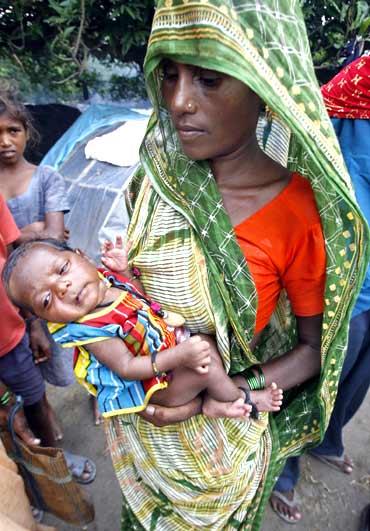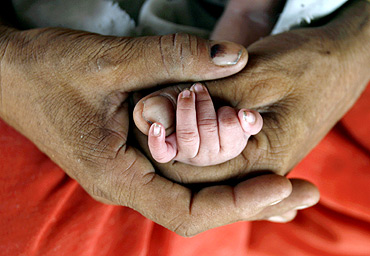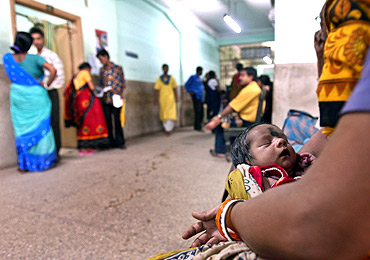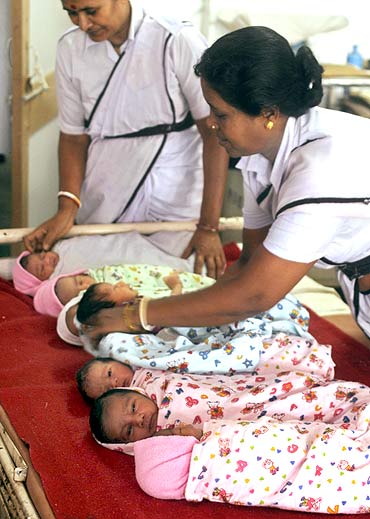
Despite a significant increase in women and child healthcare in India, more than nine lakh children in the country still die every year before becoming one-month-old, says a new global report.
The study, conducted by experts at the World Health Organisation, Save the Children and the London School of Hygiene and Tropical Medicine, is said to be the most comprehensive estimate to date, covering all 193 WHO member countries and spanning 20 years.
According to the study, India's neonatal mortality rate, or deaths per 1,000 live births, was 49 in 1990 and the country recorded 13,49470 neonatal deaths.
Please ...

In 2009, the NMR dropped to 34, which worked out to 9,07820 deaths, found the study, conducted by the experts at the World Health Organisation, Save the Children and the London School of Hygiene and Tropical Medicine.
The study, which was published in the medical journal PLoS Medicine, found that the number of newborn deaths in the world declined from 4.6 million in 1990 to 3.3 million in 2009.
But India, along with Nigeria, Pakistan, China and Congo, accounted for over half of the total deaths.
Though the worldwide newborn mortality rate dropped by 28 per cent in the 20 years, it lagged progress on maternal mortality (34 per cent reduction) and mortality of older children (37 per cent reduction for children between 1 month and 5 years).
As a result, the share of child deaths that occur in the newborn period (the first four weeks of life) rose from an already high 37 per cent to 41 per cent and was likely to continue growing, the authors said.

Study co-author Dr Joy Lawn of Save the Children's Saving Newborn Lives programme said though global focus on maternal and child health has increased over the years, it overlooked newborns, who now account for 41 per cent of child deaths in the world.
"Newborns are barely on the global health agenda and this study lays out the tragic results of that neglect. Each year 3.3 million babies still die in the first four weeks of life, despite the existence of proven, cost-effective interventions that could save these newborn lives," Dr Lawn said.
The three leading causes of newborn deaths were preterm delivery, asphyxia and severe infections. But these are highly preventable with proper care, said the researchers.

"We know that solutions as simple as keeping newborns warm, clean and properly breastfed can keep them alive, but many countries are in desperate need of more and better trained frontline health workers to teach these basic lifesaving practices," said Thomas Chandy from Save the Children.
"The global health worker crisis is the biggest factor in the deaths of mothers and children, and particularly the 3.3 million newborns dying needlessly each year. Training more midwives and more community health workers will allow many more lives to be saved," he said.